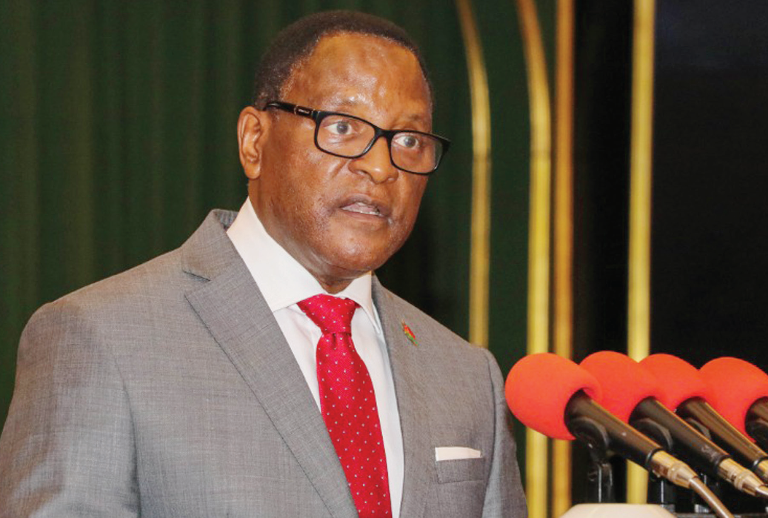
Pressure continues to mount for President Lazarus Chakwera to reconstitute the Malawi Energy Regulatory Authority (Mera) board of directors with an economist warning that further delays could be disastrous for the country.
In a telephone interview yesterday, University of Malawi economics professor Ben Kaluwa said global trends on fuel prices, including the global economy compounded by effects of the Russia and Ukraine conflict have not spared the energy sector.
He said: “The energy sector has been greatly impacted by global trends and if there will be no adjustments made on the fuel pump prices now, they [adjustments] will be accumulating, which is not in the best interest of everybody.”
Kaluwa said it was important for the President as the appointing authority to appoint a new Mera board to avert a potential crisis.
He said an increase in fuel prices has a trigger effect on prices of other goods and services in the economy such that if there will be adjustments with a huge margin, Malawians will be hit hard.
According to Kaluwa, constituting the new Mera board at the soonest time possible would be ideal in the current situation where other countries are adjusting fuel prices upwards in response to global trends. He said such countries have created an environment where they have prepared their economies for any further shocks.
This, he said, will ensure that when fuel prices are adjusted, they will be done in a manner that will not hit hard Malawians.
The Energy Regulation Act gives the Mera board authority to make regulatory decisions. In the absence of the board, as is the current situation, the regulator cannot make any regulatory decisions.
The Act also gives the President power to appoint Mera board of directors.
When asked on the President’s position regarding the absence of Mera’s board of directors, including its implications on fuel prices with emerging global trends, presidential press secretary Anthony Kasunda said Chakwera will reconstitute a new board “soon”.
“The President’s decision regarding the constitution of the Mera board will be announced in due course,” he said.
The President’s delay in reconstituting the Mera board, which resigned on February 27 2022, comes at a time both the Public Affairs Committee (PAC) and Catholic bishops have faulted him for being “too slow” in making critical decisions.
In an earlier interview, Consumers Association of Malawi executive director John Kapito said it was a difficult time for Mera, oil marketers and consumers as it is apparent that fuel prices have gone up, but cannot be effected because of the absence of Mera’s board.
Mera board of directors resigned on February 27 2022 ahead of a scheduled hearing by the Public Appointments Committee (PAC) of Parliament following a request from Secretary to the President and Cabinet (SPC) Zanga-Zanga Chikhosi for their removal due to alleged poor handling of the recruitment of chief executive officer Henry Kachaje.
On March 7 2022, Mera issued an update on trends in landed costs of fuel and hinted on a fuel hike.
But Mera said no decision can be made based on the changes in the variables that trigger price adjustment due to the absence of the board of directors.
For five months now, Mera has maintained pump prices after an assessment of free-on-board (FOB) prices, the kwacha exchange rate against major trading currencies and changes in local factors.
This is despite fuel prices on the international market increasing, which has now been worsened by the Russia and Ukraine conflict.
In its update, Mera said that since the establishment of the ruling maximum prices in October 2021, the landed costs of petrol, diesel and paraffin have increased by 16.16 percent, 24.67 percent and 24.71 percent, respectively. Price adjustments are triggered by minus/plus five percent change in the variables.
According to the BBC, fuel price increase on the global markets will have a massive effect on prices of commodities in individual countries.
Source: The Nation_March 24th, 2022_By LLoyd Chitsulo-Staff Reporter
